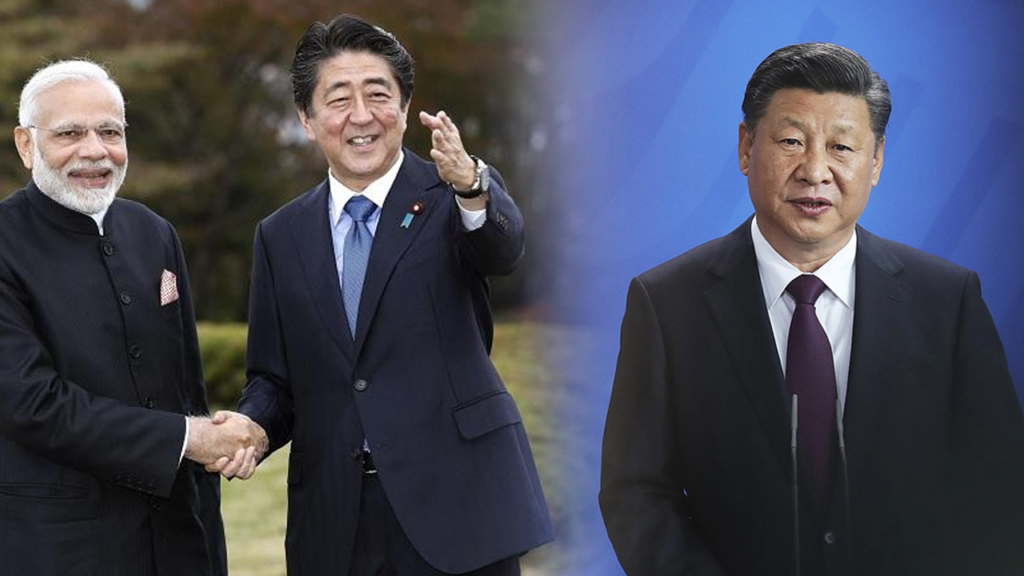As India shunned the RCEP free trade deal because its “core concerns” were not addressed, China has become accommodative and willing to address the issues. A few weeks ago, Japan showed unequivocal support to India, and said that if the country does not join the RCEP, Japan will not join either. Since then, China is trying to accommodate India, and is ready to address the issues regarding the deal.
In an interview to PTI, Chinese Ambassador Sun Weidong said, “We understand and respect India’s decision on RCEP.”
“RCEP is open, and China is willing to work with all parties, in the spirit of mutual understanding and accommodation, to continue consultations and resolve the concerned issues with India,” he added.
Previously, China had said that RCEP would move ahead, with or without India. The accommodative stance after Modi government ditched the multilateral trade pact shows that China had not anticipated that- their largest market will go for such an extreme move.
China desperately wants its neighbour to become part of RCEP because they stand to lose the largest market if the country remains outside of the world’s largest trade deal, which was expected to cover more than half of global population, had India joined.
To pressure India into signing the deal, China proposed Free Trade Agreement (FTA) with ASEAN+3 (China, Japan and South Korea) in May 2019. The proposed deal was aimed to force Australia and New Zealand to convince India to be more flexible with RCEP negotiations.
But, Modi government gave a big blow to Chinese ambitions by not going ahead with the deal. Now China is willing to offer a better deal, as it has lost the largest market.
Earlier, Japan, India’s all-weather ally, had said that it will not join the China-led RCEP if India doesn’t join the free trade deal. Japan fears that if a resurging power like India, which is capable of balancing China, is not part of the pact, the free trade block will be completely dominated by the dragon.
“All we are thinking of is negotiations including India. It is meaningful from the economic, political and potentially the national security point of view,” said Deputy Minister for Economy, Trade and Industry Hideki Makihara. “Japan will continue to try to persuade India to join,” he added.
According to Sun Weidong, Modi-Xi informal summit in Mamallapuram in October yielded fruitful outcomes, including the establishment of a high-level economic and trade dialogue mechanism. Now, China is also willing to take steps to ease the 53 billion dollars trade imbalance between the countries.
“It shows that China attaches great importance to the development of China-India economic and trade relations. It is also a positive step taken by China to ease trade imbalance between the two countries and strengthen practical cooperation in trade and investment,” said Sun Weidong.
Modi government had very solid reasons to back off from China-led RCEP. The member countries of RCEP include ten member states of the Association of Southeast Asian Nations (ASEAN) (Brunei, Cambodia, Indonesia, Laos, Malaysia, Myanmar, the Philippines, Singapore, Thailand, and Vietnam) and 6 Asia-Pacific countries (Australia, China, India, Japan, South Korea and New Zealand). Out of the 15 member countries, India already has trade deals with ASEAN (10 countries), Japan, and South Korea.
The only countries whose market access India would have got are- Australia, New Zealand and China. The government is already working on bilateral trade deals with New Zealand and Australia. Modi government is not interested in signing a free trade deal with China as India already has a $53 billion trade deficit with the country.
A $53 billion trade deficit with China is a major concern for the policymakers in the country; businessmen policymakers also worry that India could be dumping ground for Chinese exports as the United States shuts door for them. Therefore, India wanted import cap for China which means the country would have been free to raise tariffs on Chinese products, but the member countries did not agree to Indian demand.
A multilateral deal like RCEP, with India’s concerns unaddressed, would have further widened trade deficit with member nations. India would prefer a bilateral deal with member countries of RCEP instead of a multilateral deal. Out of the 15 member countries, India already has trade deals with ASEAN (10 countries), Japan, and South Korea.
As India has ditched RCEP as of now, it looks like China and other RCEP nations will offer the country a better deal in the upcoming months. It is important to join a multilateral trade block, but, signing it our terms is more important.
